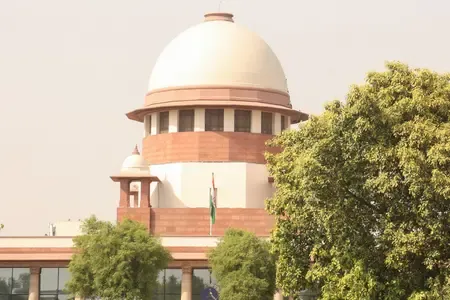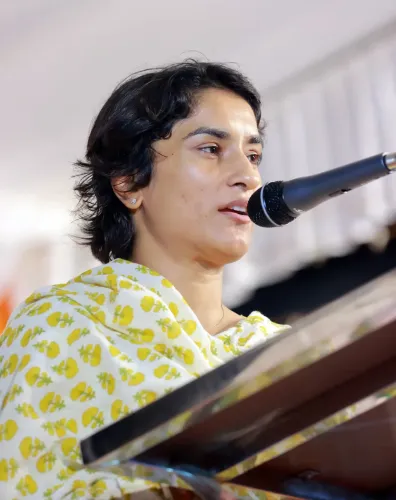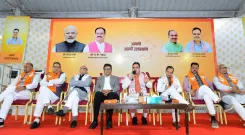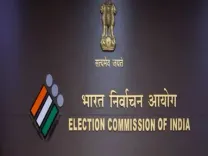Why Did the Supreme Court Reject the Petition to Include Political Parties in Anti-Sexual Harassment Laws?

Synopsis
Key Takeaways
- The Supreme Court's decision highlights the limitations of judicial intervention in legislative matters.
- The POSH Act's applicability to political parties remains a contentious issue.
- Women’s safety in political environments requires urgent legislative attention.
- Political parties are currently not mandated to have internal complaints mechanisms.
- The petitioner has the option to pursue further legal avenues.
New Delhi, Aug 1 (NationPress) The Supreme Court on Friday decided not to entertain a public interest litigation (PIL) aimed at including political parties under the framework of the anti-sexual harassment law.
"This is a matter for Parliament. How can we interfere? It is a policy issue," remarked a Bench led by Chief Justice of India (CJI) B.R. Gavai and K. Vinod Chandran.
Senior advocate Shobha Gupta, representing the petitioner, clarified that she was not seeking a new law but rather an interpretation that would encompass political parties within the Sexual Harassment of Women at Workplace (Prevention, Prohibition and Redressal) Act, 2013, commonly referred to as the ‘POSH Act’.
Gupta noted that a ruling from the Kerala High Court determined that political parties are not legally mandated to form an Internal Complaints Committee under the PoSH Act due to the absence of an employer-employee relationship among their members. Thus, she argued, this issue should not be seen as strictly legislative.
In response, the CJI Gavai-led Bench advised the senior counsel to independently challenge the Kerala High Court's ruling by filing a special leave petition with the apex court.
Subsequently, she opted to withdraw the PIL, which the court permitted. The Supreme Court ultimately dismissed the plea as withdrawn, granting the liberty to take 'such steps as advised in law'.
Last December, the apex court had addressed a similar plea but directed the petitioner to engage with the Election Commission of India (ECI), indicating that the electoral body was the appropriate authority to encourage recognized political parties to implement internal mechanisms for addressing sexual harassment complaints.
"If the petitioner’s concerns are not adequately resolved, she is free to approach the judicial forum as per the law," the apex court had stated.
According to the recent PIL, the petitioner submitted a representation to the ECI in March this year, and as of now, no reply has been received from the electoral body.
The PIL sought a declaration that political parties are obligated to adhere to the procedures for safeguarding women in the workplace as outlined in the Sexual Harassment of Women at Workplace (Prevention, Prohibition and Redressal) Act, 2013.
It requested the apex court to broaden the scope of the POSH Act to include political party workers, ensure accountability for political parties in providing a safe work environment, and protect individuals associated with political parties from sexual harassment.
In addition to the Union government and the ECI, the PIL named several political parties in its memo, including the Congress, the Bharatiya Janata Party, the CPI(M), the CPI, the Trinamool Congress, the Nationalist Congress Party, the National People’s Party, the Bahujan Samaj Party, and the Aam Aadmi Party.









